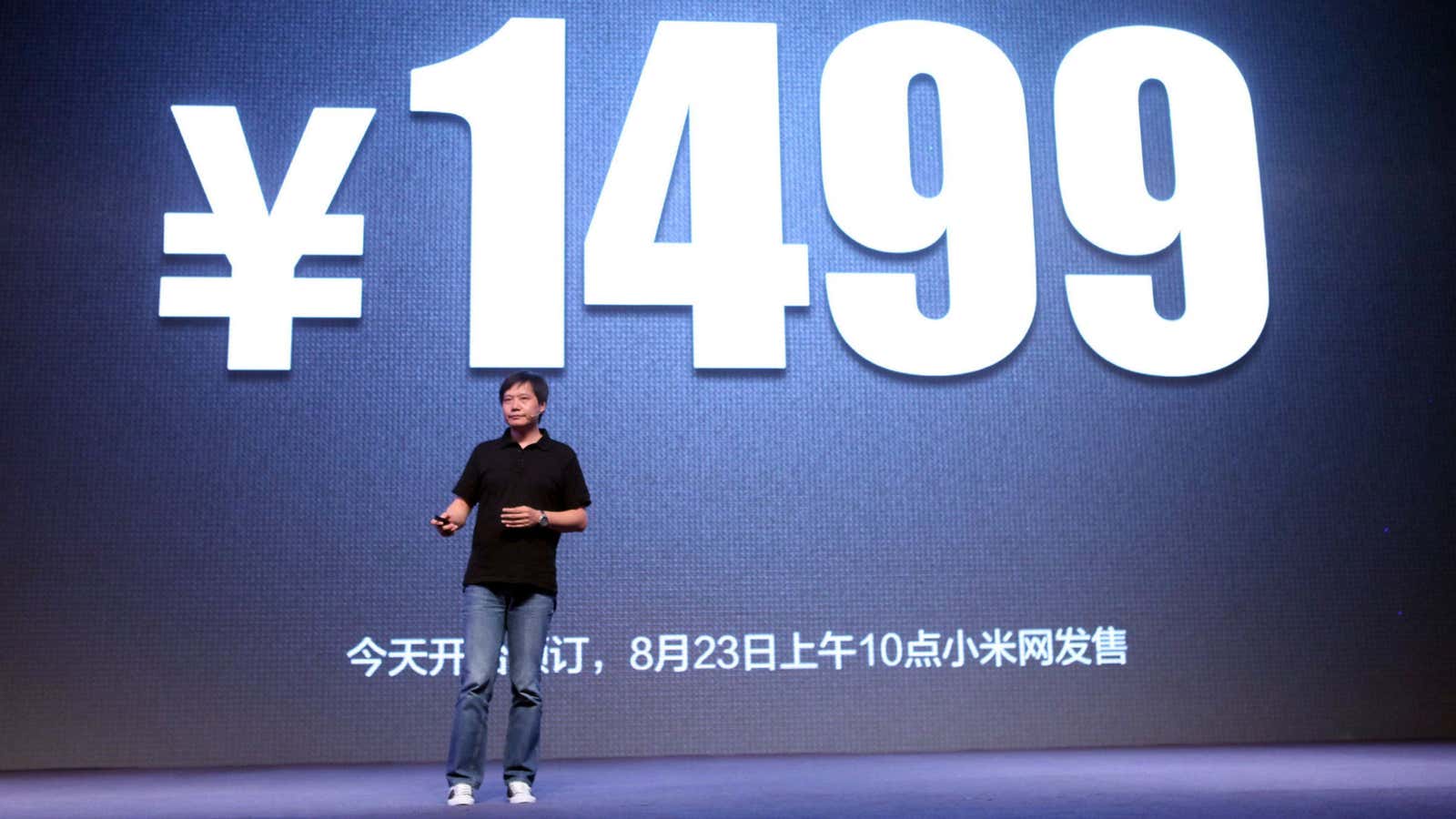Lei Jun, CEO of Chinese mobile phone company Xiaomi, confirmed today on his Sina Weibo account that a recent round of funding valued the company at $10 billion. He did not go into details but that means the three-year-old company, valued last year at $4 billion, is now worth nearly twice as much as Blackberry and is on par with Lenovo, founded in 1984. Quartz first reported the prospective rise in Xiaomi’s valuation two months ago. The company’s rapid rise is all the more astonishing considering that Xiaomi only makes mobile phones, sells them only in China, Taiwan and Hong Kong, and hadn’t hit the market until two years ago. Here’s how Xiaomi’s valuation got so big:
- Good value: Xiaomi phones are very cheap. They are also rather attractive. The Xiaomi Hongmi, released earlier this month, is priced at $130. Yet it offers a large, high-resolution screen, fast processor, and a good camera. Millions of people signed up to get one as soon as the phone launched. Its higher-end phones retail in the region of $300. That renders moot comparisons to Apple ($600 and upwards for the iPhone 5) and even Samsung’s mid-range devices (between $200 and $300). And it explains why a company that sold just 7 million devices for $2 billion in revenue last year can double its forecast for this year to 15 million, and then raise it again to 20 million.
- Great timing: The mobile landscape has changed beyond recognition in the past two years. Global smartphones sales doubled from about 100 million per quarter in 2011 to well over 200 million in the first three moths of this year. The rise of the mobile phone has affected everything from website design and traffic to the personal computer business. Xiaomi entered the market just at the cusp of this boom. With its high-quality, low price devices and a chief executive who emulates Steve Jobs it was always going to do well.
- Huge potential: Xiaomi recently displaced Apple to become the sixth-largest selling smartphone maker in China but it only controls a mere 5% of the market. Its CEO wants to do more with the platform he provides, likening the phones Xiaomi sells to Amazon’s Kindles. He should know a thing or two about that; he made his first fortune with Joyo.com, a large e-commerce company that Amazon bought for $75 million in 2004. And then there is the rest of the world, which Xiaomi, with its image yet untarnished, may have a better chance of wooing than its peers Huawei and Lenovo.




